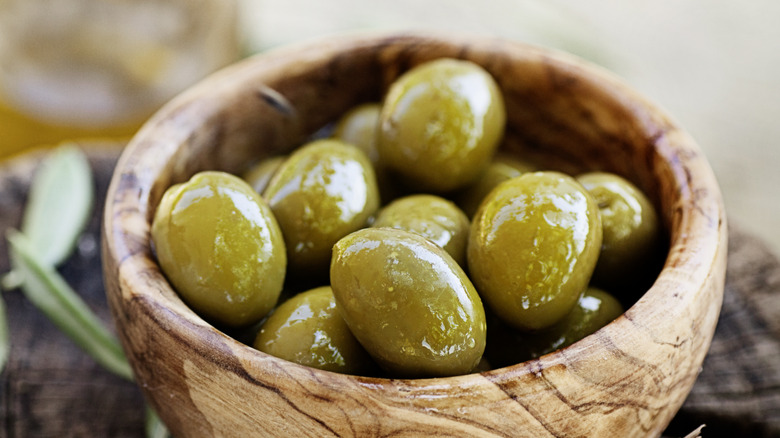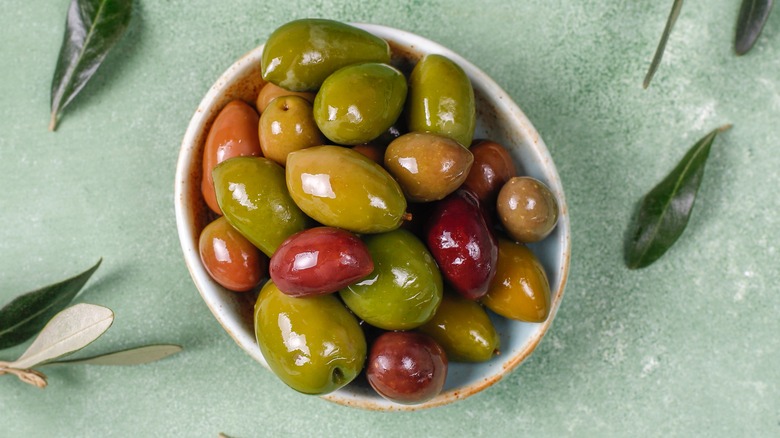Are Olives With A White Film Safe To Eat?
Olives cannot be eaten fresh off the tree. They may look appetizing, clinging onto thin, twisting branches, the silvery leaves glittering in the light of the evening sun. But an olive eaten straight off the tree is extremely bitter and unpleasant. Fermentation is therefore required, and nothing tastes quite like a well-seasoned olive. The salt, acidity, tang, and meatiness of a Kalamata, Niçoise, Liguria, or a Manzanilla olive make them terrific additions to salads, cheese boards, and even burgers.
Olives picked from the tree are either ripe or unripe. Which maturation stage they are in will determine the strength and length of the fermentation process. For instance, green olives, picked unripe, need a saltier brine and a longer fermentation period. As the olives soak, the salt, vinegar, and other brine seasonings steadily penetrate the olive's interior. After three to seven months, the olives are beautifully salty, but maintain an ever so slight hint of bitterness left over from when they were picked. An olives bite never completely vanishes.
So what happens when you've bought a packet of seasoned olives and notice that a white film has set over them? The sight of it will likely trigger thoughts that the film shouldn't be there and that your olives must have gone bad. But before you head to the garbage bin or the compost heap, take a breath. Let us provide you with some comfort. There is absolutely nothing wrong with your olives.
A probiotic film
An olives fermentation doesn't actually stop just because it has been removed from its brine. On the contrary, contact with the air will cause the vinegar from the brine to oxidize. The olives' lactic yeast, which has been activated during fermentation, will form a film around the olive's surface. These lactic bacteria are a natural component of the fermentation process and are completely safe to eat. In fact, the white film is actually really beneficial.
The white film that forms on the olive is scientifically known as lactobacillus probiotic bacteria. According to Mount Sinai, lactobacillus acidophilus is among the good bacteria found in your gut that actually help fight the bad types of bacteria that cause disease. The probiotics are said to improve lactose tolerance, aid in digestion, fight chronic constipation, enhance the immune system, treat high cholesterol, and even reduce the risk of childhood eczema.
To be clear, we're not saying that olives are a cure-all for any of the ailments listed. You would need to consume more than a few olives to get even remotely close to the amount of lactobacillus acidophilus found in probiotic supplements. Still, if you're a fan of olives, but have had concerns in the past about the white film formed on the skin, rejoice in knowing that it is not only harmless but actually good for you.

